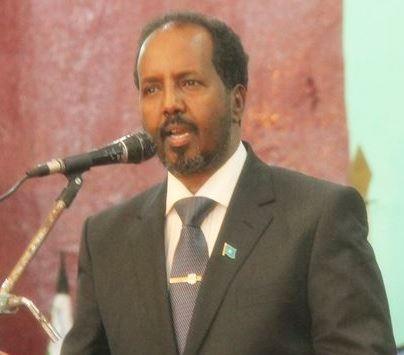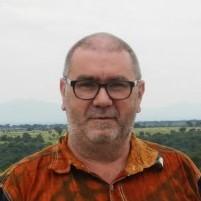Somalia seeks lasting support from London conference – By Farah Abdulsamed


Somali President Hassan Sheikh Mohamud has many challenges preventing Somalia falling back in to conflict.
Today, over 40 delegates from many nations and organisations are meeting in London to discuss the future of Somalia’s post transition government. The Somali-led conference, hosted by Britain, will address the reconstruction of the governance system – namely security, Justice and Public finance management. The conference”” held six months after the first post-transition government in 20 years””offers an opportunity for Somalia and international partners to identify existing problems and map out actionable steps leading to a successful post-transition life. However, its effectiveness will likely be undermined by international hesitation to offer financial commitments and the decision by the autonomous regions of Puntland and Somaliland to boycott the conference.
The governance sector is the flagship of the government’s key demands – namely the rebuilding of security, justice and public finance management systems. While the three pillars are interconnected, donors should prioritise security sector and national Army reform.
The Somali National Army (SNA) is still struggling to flush out Islamist insurgents, but suffers from a lack of air and mechanised units as well as an absence of a self-sustaining operational budget. Somalia continues to depend on AMISON and neighbouring countries for its security. Given the limited coercive capacity of the government, security continues to be a prerequisite for political development and economic growth. The long period of war and violence has made “˜conflict memory’ a key influence in perceptions of security. Influenced by such perceptions, people tend to act more cagily, and thus slowly, in investing their hope in long-term government projects aimed at peace and prosperity.
Building police capacity is a more urgent need than that of the army – donors have paid little attention to Police forces in the past, which are currently besieged in their fight against terrorists. As a result, there is more police death in the frontline in Mogadishu on daily basis than Army. Members of the police and army have often received basic training in neighbouring countries, but there remains a need for comprehensive training in Somalia.
The Justice sector also suffers from a very low level of human resources and infrastructure – the absence of courts, unqualified judicial personnel and corruption are major setbacks. The civil war has destroyed the institutional integrity of the justice system and left a patchwork of contradictory and overlapping laws (including “˜customary’ and Sharia). The conference should priorities these areas too.
President Mohamud, whose relations with other Horn of Africa countries have cooled strikingly over the last couple months, is also having a difficult time at home and relations between the southern regions of the Jubbas and autonomous north of Somaliland and Puntland are shaky. In these less than ideal circumstances, he has to convince the international community that he can deliver on his promises regarding the security sector. One crucial area is the war against Islamist Al-Shabaab which is not yet won. The attacks in April on the Supreme Court were a forceful demonstration of the weakness of the Somali government. The Islamists claimed responsibility and with just a handful of fighters managed to penetrate into the heart of the capital – just meters away from the presidential palace. According to think tank official in Mogadishu, “the attacks show that the Somalia government as well as the AMISON forces still does not have an accurate picture of the Al-Shabaab insurgency.”
Many people within Mogadishu are also dismayed by Mohamud’s persistent overtures to the insurgents. The new government is preoccupied with trivial political issues than counter insurgency. This is what has led to the re-emergence of the Al-Shabaab.
The challenge of rebuilding Somalia is a test of state-building where economic development is closely linked to security and political reconfiguration. Economic recovery hinges on the establishment of the rule of law and effective government. Lack of progress in one area hinders recovery in other sectors. This is where government needs to commit because it has not realised that the threat of renewed clan conflicts could destablise peace and stability.
Somalia is once again at a crossroads. One road leads to peace and prosperity; the other to the loss of all that has been achieved. Everything depends on the level of international commitment to help Somalia and how clans resolve their differences. Lost opportunities and the failure to respond to challenges are unfortunately the hallmarks of Somalia’s chaotic past..
Planning and implementing reconstruction requires extensive, predictable, and sustained international aid. But the aid itself needs to be allocated to the government. Over the last 20 years aid money has been allocated to entities outside government control. Mostly it was spent by NGOs, the UN or other contractors – this hinders state-building and undermines government legitimacy. So far, the government has committed itself to transparency and improving its capacity to minimize expenditure. In return, the donors need to trust and allocate their assistance and ensure to spend money in accordance with the priorities of the government.
The conference needs to make clear that the government and people (including their partners in the international community) are united in their efforts to make tangible and sustainable progress towards a more stable Somalia. This will not be an easy task to accomplish and it will not be without setbacks. Despite all the failures and disappointed aspirations of the past conferences, however, the alternatives to reconstruction support in the coming five years and beyond are even less palatable.
Somalis do not deserve a return to all-out civil war, and the international community cannot afford the country sliding back and dragging the Horn of Africa region with it. If donor countries are reluctant to meet the cost of rebuilding, or if the Somali government is unable or unwilling to make the decisions needed to use aid effectively, they must answer the question: what risks are they willing to accept?
The author is a governance expert on Somalia and long time donor adviser.







The conference was a waste and useless, so much can be said already now.
When the existing and working state of Somaliland – which is independent and a success story as rarely exists in Africa – and the nascent state of Puntland – which is on a good way, although not yet arrived – are not part of such a conference on Somalia as a whole, you can simply forget it.
[…] author is a governance expert on Somalia and long time donor adviser. AA Share this:StumbleUponTumblrPinterestDiggLinkedInGoogle +1MoreTwitterFacebookLike this:Like […]